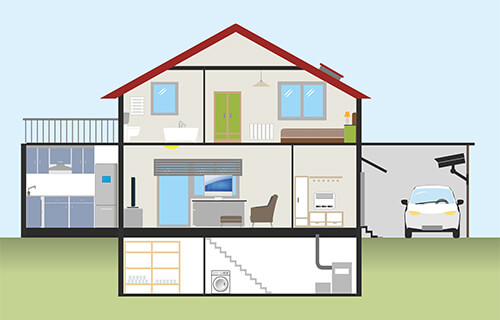Should I request an increase in my credit limit to increase my credit score?
"I only have one 2,000$ credit limit credit card. I always pay my bill on time in full every month . Should I get another credit card or request an increase in my current limit for a better credit score?"
Paying your credit card balance in full is always a good idea, for two reasons.
First, the obvious: revolving credit is extremely expensive—upwards of 30% in some cases. Even a 9% card is high, compared to other forms of financing such as mortgages and car loans.
Avoiding mortgage insurance by using your 401K? Do the math first.
It’s not a sin to pull money from your 401K, but whether you decide to put down more cash to avoid mortgage insurance is entirely up to you. Here’s some information to help you decide.
When lenders consider risk on a loan, the loan-to-value ratio is one of the factors they evaluate. A loan for more than 80% of the property’s value presents a greater risk in their view. To manage that risk, they require mortgage insurance which is usually paid monthly and added to the payment.
Should you waive your home inspection to improve your offer?
Many home buyers think waiving the home inspection in hopes that the seller will review their offer more favorably. Think very carefully and have a pot full of money set aside just in case.
Okay. It may sound bureaucratic and boring. But there are a number of precautionary contractual conditions for any purchase agreement recommended by the Realtor community that protects home buyers from liability as well as poor decision-making. And no matter how competitive the bidding for a home, they'll advise you to include them. One of them is a home inspection.
California new home purchases are the choice of many home buyers. It's a different process. Hire an agent to deal for you.
Navigating the waters of a new home purchase means getting intensely curious about what the purchase entails. You don’t know what you don’t know until you ask. It’s a Saturday afternoon and as you drive down the freeway you notice billboards advertising a new home subdivision at the next exit. You take that exit and find yourself driving past empty home sites, some with little sticks in the ground, and you follow directional signs and flags to a model home complex.
You realize you’re not in Kansas any more when walking into a sales office that takes the place of a home’s three-car garage. A friendly, well-dressed salesperson greets you, guiding you over to a center island graphic set-up meant to give you an overview of the neighborhood. As you gaze into its depths, you see tiny, meandering streets and colored shapes representing homes.
Multi-generational households are becoming normal. We understand and can help.
According to Audrey Hoffer at the Washington Post, multi-generational households are becoming more common now than in past decades. Ever since the Recession this living arrangement that can include grandparents, parents, and grown children is becoming a notable study in the changing household demographic.
During the last year of the Great Recession (2009) 17 percent of Americans lived in households that were multigenerational, according to a senior writer and editor at Pew Research Center. This means 51.5 million people were living in homes with either grandparents and grandchildren, or with two or more adult generations, all based on census data. It's estimated that about 20 percent of Americans — 64 million people — playing checkers, fighting over bathroom rights, or watching TV with another generation. And yes, it’s a new record.




